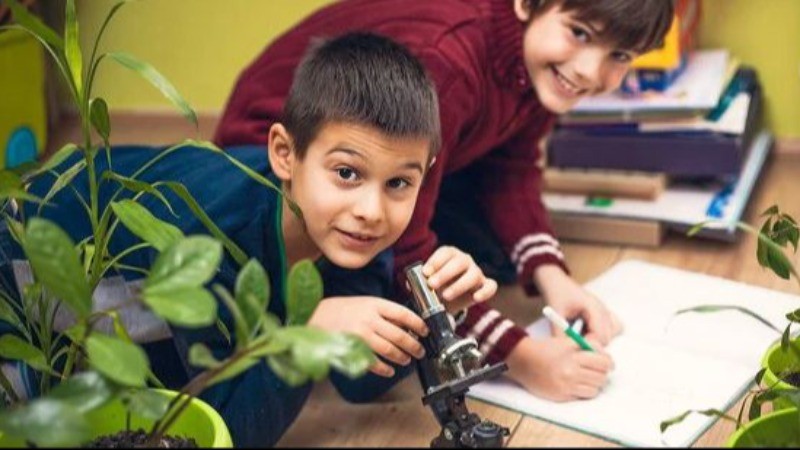
Creating an environment that supports concentration and positivity can significantly impact children's study habits. A well-designed study space enriched with certain indoor plants can enhance focus, reduce stress, and maintain a positive atmosphere. Here are five essential plants to consider for your children’s room:
1. Cordyline Fruticosa (Lucky Plant)
Benefits: Cordyline Fruticosa, also known as the Lucky Plant, is renowned for its air-purifying qualities. This plant helps cleanse the air of toxins, creating a serene environment that promotes better concentration and mental clarity. The presence of this plant can also add a touch of elegance to any study space.
Placement Tips: Place the Lucky Plant on your child’s study table or in a corner of the study room. It thrives in indirect light and requires minimal maintenance, making it a practical choice for busy households.
2. Orchid Plant
Benefits: Orchids are not only visually stunning but also contribute to a positive atmosphere. Their vibrant colors and delicate blooms can lift spirits and create an inviting environment. The presence of orchids can improve mood and make studying a more pleasant experience.
Placement Tips: Orchids do well in bright, indirect light. Consider placing them on a desk or a shelf where they can be admired without obstructing study activities. Regular watering and occasional misting will keep the plant healthy and blooming.
3. Peace Lily
Benefits: The Peace Lily is celebrated for its ability to purify the air and create a calming environment. Its white blooms and lush foliage help to reduce indoor pollutants and maintain a tranquil atmosphere. This plant is particularly effective in improving air quality, which can contribute to better focus and reduced stress levels.
Placement Tips: Peace Lilies prefer low to medium light and should be kept in a spot where they can receive indirect sunlight. This plant requires regular watering but should not be overwatered. Placing it near the study area can enhance the overall ambiance.
4. Bamboo Plant
Benefits: The Bamboo Plant, often associated with good luck and positive energy, is a great addition to any study space. It acts as a natural air purifier and is believed to bring prosperity and good fortune. The plant's resilience and low maintenance make it ideal for busy environments.
Placement Tips: Bamboo Plants can thrive in low to bright light conditions. They can be placed in decorative containers on the study desk or a shelf. Ensure the plant is kept in water and receives occasional sunlight to maintain its health and vitality.
5. Jasmine Plant
Benefits: Jasmine plants are known for their soothing fragrance, which can help reduce stress and anxiety. The pleasant aroma contributes to a peaceful environment, making it easier for children to focus on their studies. Additionally, the plant's appearance adds a touch of natural beauty to the room.
Placement Tips: Jasmine plants thrive in bright, indirect light and should be placed where they can receive ample sunlight. Regular watering and occasional fertilization will help the plant flourish. Jasmine can be kept in a pot on a windowsill or a decorative stand.
Incorporating these five plants into your children’s study space can create a nurturing environment that supports both academic performance and overall well-being. Each plant offers unique benefits, from improving air quality to enhancing mood, contributing to a space where learning becomes more enjoyable and effective. Choose the plants that best fit your room’s conditions and your child’s needs, and enjoy the positive impact they bring to the study area.
Israel Health Ministry Launches First Suicide Prevention Campaign, Urges Men to Seek Help
Is It Right or Wrong to Consume Juice on an Empty Stomach?
If You Work on the Computer All Day, Try These Tricks to Alleviate Eye Fatigue